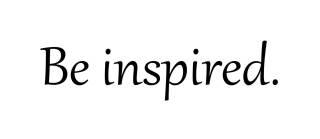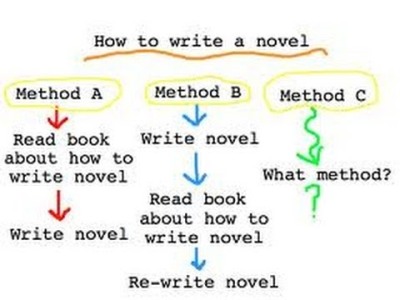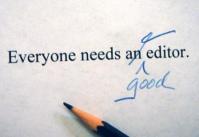So many times I have been asked this question, not only by friends or beginner writers but by fellow established writers who often wonder if we all have similar quirks. One thing I have discovered is that by writers standards, some of my writing process is rather odd, considered weird even lol.
So in the name of all things fun, I decided to create the ‘Leanne’s Guide to writing Romance’ in the way that I do. It may work for you or it may not, it may allow you to think outside the box and find what works for you instead. I do know that everyone is different and we should celebrate our unique way of doing things.
Find your most comfortable place to write…set the atmosphere. I can write locked in my room, sprawled on my bed with a laptop and silence, but I can also sit at my desk surrounded by kids and chaos and blare music. I need different atmosphere for different scenes.
First things first…

Getting inspired!
This one is so easy for me, I have a brain which absorbs information from around me constantly, I get ideas from lots of minor interactions with the world, I can formulate characters from taking a walk down a country lane, catching a bus or listening to people chat in a supermarket. So beware if you see a hovering woman in the toilet paper aisle appearing to listen too closely, she may be thinking about putting your innermost thoughts in a book. A blessing but also a curse as I tend to daydream which often results in minor mishaps when my focus is shot. A good way for me to hone in and really try to formulate a character or plot is very simple, I do not try at all. I will read current romance books that have hit the shelves, watch my fave romantic movies or new releases and just kick back for a couple of days letting my brain work out the ideas slowly. For me, this is a very natural process and as long as I do not try and force a novel idea, it usually comes to me like a flashing light. I will often find I get fixated on one set of characters, usually a male and female love interest and some sort of scenario or conflict will arise, just one scene and that’s enough to peak my interest. Up until this point, I will not have ventured near a computer or notebook, I’ll just mull over the idea for a bit, daydream about possible outcomes and try to build on the idea.

Expand the idea!
Now that I have the basis for my characters, maybe an inkling of a story I will set about expanding this in many ways. I will research places I may want them to live, I may listen to songs that may evoke the right emotions and conjure more scenarios in my head but really at this point, my main focus will be ‘Who are they as individuals?’ I will start to compile a little identikit on each of them, create a fun fact file of star signs, print outs and even celebrity images! How they look, career, age, background history etc. While going through this process which can take anything from a day to seven I will usually start laying out the plot idea a little more clearly in my head. I will keep notes for possible ideas and yet again….this important point… I stress about none of it, I force nothing. Natural flow remember! It’s at this stage I will either fall completely in love with my characters or dismiss them and return to stage one once again.
Write the skeleton plot.
Now while most writers will lay out a short plot, notes on story and where they want the book to go I actually lay down a skeleton book instead. I will sit down and work from A to B writing a quick version of my entire book, this usually ends up around 120 pages long on a word document. While writing at this point I do a couple of things that work for me, I’ll either have music that suits my book set on a playlist and listen to each song in turn at the right book points or I will sit in complete silence in a secluded room to hammer out my thoughts. I will pay no heed to grammar, spelling, punctuation or anything at all that deviates from the flow of typing. I will not stop until I get to my end scene. Regardless of what’s written down, whether it be good or bad I will not go back and read any of it until I reach the very end.I have been known to hammer out 80,000 words in a week this way. I find this stage the easiest because there is no pressure at all, it’s just a spewing of thoughts and ideas in a semi-sensible way out onto a document no one shall ever see. If I struggle to get through this stage and cannot get from A to B fluidly then I know this particular story isn’t ready to be written and I will either return to my research stage to further explore or I will watch related videos on youtube to stir my creative juices. Watch location videos, watch romance stories, maybe even research some of the conflicts I want in the book to get a better understanding. I have been known to scrap entire stories at this stage returning to the drawing board.

Expand on your plot.
So once I have gotten through to the finale of my novel well its time to take a deep breath and do it all over again! Before I start this stage I will usually take a couple of days break, clean my house, organise my life, put some distance between me and my book. Why? Because if my head is still too full of the crap I have previously written I will not be able to look at it critically. I will return to my daydreams, my research and my thinking things through before I attempt to read my skeleton plot. When I do sit down to read it I will be amazed at my inability to write a decent book, I will usually cringe at my own efforts. This will spur me to work from chapter one, taking one chapter at a time to start fixing the mistakes, expanding the story and working on things a little more seriously. This is where the real work starts. I will now have to delve into the story fully, work through changes, delete whole paragraphs and sometimes whole chapters. I will work in a very tedious manner taking this where it needs to go.

Ask for constructive criticism
Yes, that is right, go out and find someone to tell you what is wrong with your story. I have a couple of go-to girls who are not only fabulous friends but bloggers who review things, one is a book editor! I will shove my rough version at them and wait for the pain of the response. A good writer can take criticism because it’s a necessity to write a good story. A good critic will point out the flaws in your plot, show you the flaws in the characters and give really great impartial advice. Do not rely on friends and family who will be biased, find readers who know that they like, have experience and will be straight with you. I have the best team for this and could not love them more. They have kept me right in so many ways , I would never be angry or hurt at their suggestions. While your critics are reading through your work, take the time to do the same, read it with fresh eyes, identify issues and take lots of notes, highlight things that don’t flow. Good writing is not a book written in one swoop. It can take several passes to make it right.

Re-writes
Yes, I know, sigh again but truly, if you are going to be a writer then get used to this. I call this my ‘ARGHHH’ stage. This stage is when I normally rip my hair out, drink excess amounts of caffeine and want to cry a lot. The re-writing stage, armed with critic and a clearer picture of what to do can be frustrating, Sometimes I will stare at my screen blankly, all creative motivation shriveled into a small ball. Sometimes I will be fizzing with energy and tackle pages upon pages with the ferociousness of a manic person, by this point, I am usually teetering on the verge of insanity and have read my own book way more times than necessary. I have committed each sentence to memory and really could use two weeks in the Bahamas. But see, this is the stage where the true magic happens and your rough patchy version turns into the shadow of the masterpiece it will become. I say ‘turns’ because to this point I have still not really given much attention to the line to line editing that will finally happen later.
Editing and Beta Reading.
Okay, so this stage is very important if you are going to attempt to publish your book or have a publisher look at your book. If you are capable of self-editing then that is great but a real editor or beta reader will look for things with a trained eye that you most likely have never noticed. They know how to restructure your words to improve flow, they can ask for minor changes in scenes that make more sense. Basically, their job is to make sure your work is at it’s best for any future publishing and I highly recommend snagging someone who can do this for you and not rely on your own skills. I am lucky enough to have a very close friend who is also my editor, she works in the book world, she has many beta reader friends and blog reviewers on her side and she is my best weapon. Don’t be ashamed to reach out and ask for help sometimes you may have people around you with skills they have never mentioned.
So that is basically my writing process but there are a couple of things I want to touch on which relate.
Writer’s block!!
Yup, we all get it. That frustrating blank staring at your screen when your fingers waiver and you cannot process anything at all. We all have so many ways of dealing with it and often they are all so unhealthy. I find that writing something, even if it’s trash is better than nothing and within minutes of forcing to write, I will gradually begin to open up and flow. Another good thing for me is to walk away and do something energetic, dance, clean my house, go for a walk, the mind is so much more open after physical exercise. Thinking through your scene can help, walk away, get a cuppa, turn on a movie and just chill…sometimes it’s all the creative brain needs, like a rest button. Do not despair if you are faced with blank and you really need to write. Try a different approach, skip the scene and start elsewhere, do more research or simply take a break and try not to mull over it obsessively.
Yup – Don’t over think it!
I am the biggest abuser of this. I have a tendency to overthink every single part of my story, to try and add clever meaning behind each moment or dialogue. I have had to learn that sometimes, simplicity is the key. That you can over describe a scene, you can over complicate characters or relationships and you can pretty much ruin a good read with a mass of unnecessary crap. Pull it back, if your brain feels like it’s going to explode while your writing then there is a good chance your over complicating. Writing should be fun if it’s not then your doing something wrong.
Look out for my debut Novel Just Rose coming to Amazon soon.












